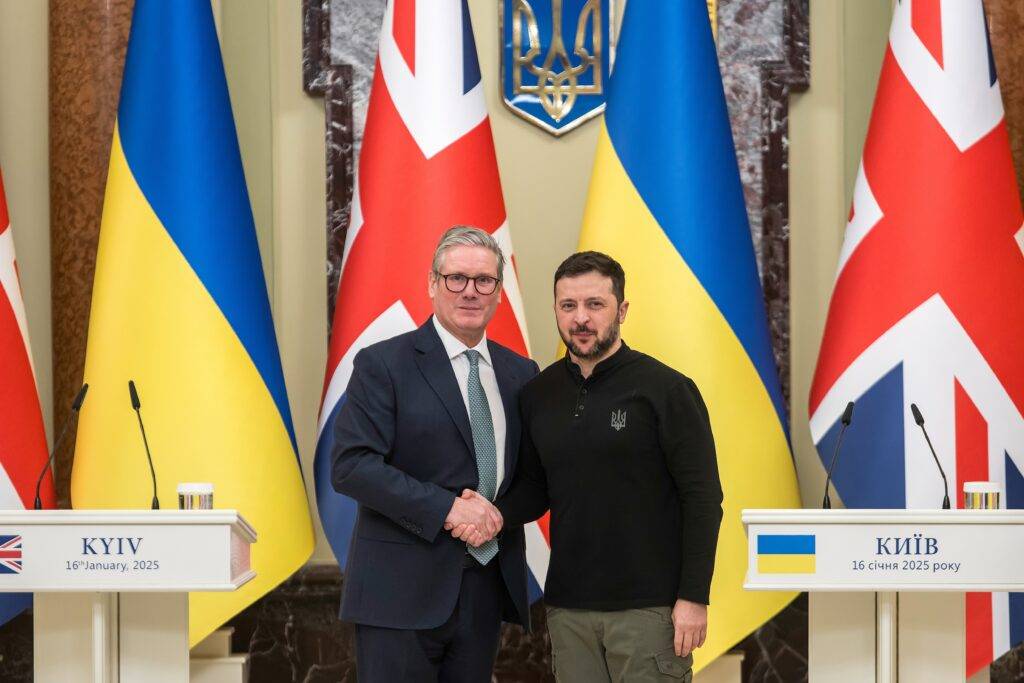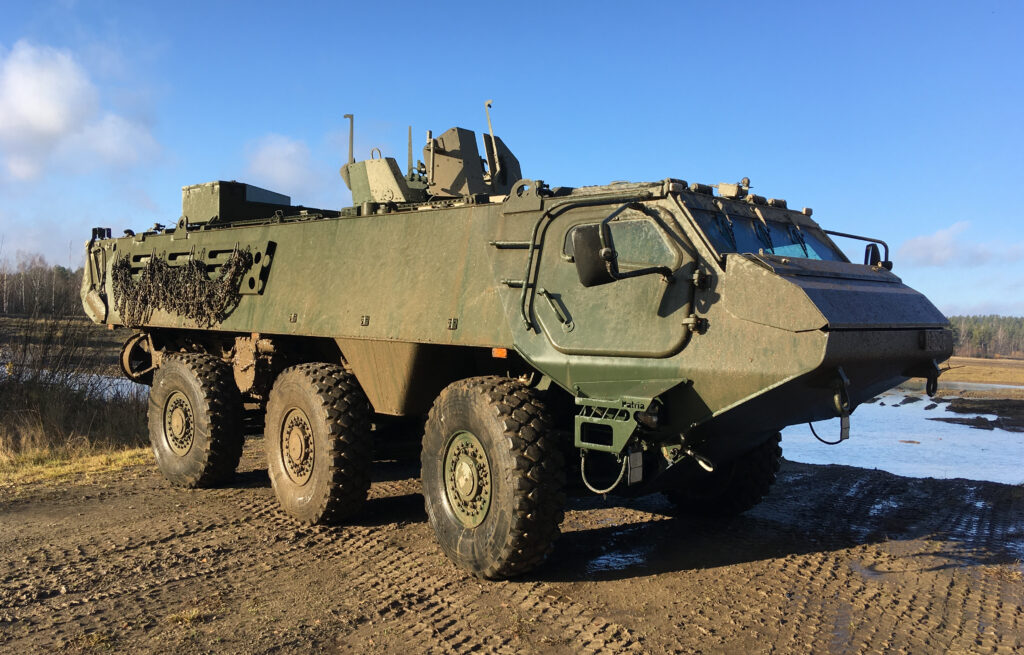In mid-March 2025, British Prime Minister Sir Keir Starmer unveiled a bold initiative: the formation of a new “Coalition of the Willing.” This coalition aims to unify European nations and global allies in a concerted effort to support Ukraine amidst its ongoing conflict with Russia. Trump’s special envoy, Steve Witkoff, dismissed Starmer’s plan as “a posture and a pose”.
Starmer’s coalition is founded on a four-point plan designed to ensure Ukraine’s sovereignty and deter further Russian aggression: 1) Sustained Military Aid: Maintaining a continuous flow of military assistance to bolster Ukraine’s defence capabilities. 2) Economic Pressure on Russia: Implementing and intensifying sanctions to weaken Russia’s economic standing and its capacity to sustain military operations. 3) Security Guarantees: Developing a robust framework to guarantee Ukraine’s sovereignty and territorial integrity in any forthcoming peace agreements. 4) Peacekeeping Preparedness: Establishing a multinational force ready to deploy as peacekeepers to uphold any negotiated ceasefire and ensure regional stability.
Nordic and Baltic Involvement
The Nordic and Baltic countries have demonstrated significant commitment to this coalition. Finnish President Alexander Stubb confirmed Finland’s involvement in drafting the UK-France-Ukraine peace plan. However, he noted that the role of countries neighbouring Russia would differ from providing peacekeeping troops. Estonia, Latvia, and Lithuania have pledged increased military aid to Ukraine, including ammunition supplies and training support. Their proximity to Russia and historical experiences makes them particularly attentive to regional security dynamics.
The Nordic-Baltic countries have prioritised cooperation in countering Russian cyberattacks and hybrid threats, strengthening Ukraine’s resilience against these increasingly sophisticated forms of warfare.
Trump’s Envoy Dismisses Starmer’s Plan
The international response to the coalition has been mixed: Donald Trump’s special envoy, Steve Witkoff, dismissed Starmer’s plan as “a posture and a pose,” calling it “simplistic” and based on a misguided desire among European leaders to emulate Winston Churchill. In an interview with pro-Trump commentator Tucker Carlson, Witkoff went further, praising Vladimir Putin as “super smart” and saying he “liked” the Russian president. He repeated Kremlin talking points, questioned Ukraine’s legitimacy as a nation, and failed to name the five partially occupied regions of Ukraine. His dismissive tone has raised concerns among European leaders about the U.S.’s commitment to a principled peace.
Witkoff’s public remarks included inaccurate claims about the conflict, such as Ukrainian troops being surrounded in Kursk – denied by Kyiv – and portraying Russian-orchestrated referenda in occupied regions as legitimate expressions of popular will. He called Ukraine a “false country” and stated that Russia had already “gotten what they want,” indicating no push for further expansion. His praise of Putin and open desire for post-war U.S.-Russia cooperation on energy and AI has cast a long shadow over U.S. credibility in the region.
The EU has shown support for the coalition, with discussions about integrating non-EU countries like the UK and Norway into European defence initiatives. This approach aims to strengthen the continent’s collective security framework.
The Kremlin has expressed strong opposition to the deployment of international peacekeepers in Ukraine, viewing it as a potential threat to its strategic interests. This stance presents a significant diplomatic challenge for the coalition’s objectives.
Need for Proactive Measures
The formation of this new “Coalition of the Willing” reflects a collective acknowledgment of the need for proactive measures to ensure regional stability. The involvement of Nordic and Baltic countries highlights the importance of a unified approach, especially from nations directly affected by geopolitical tensions with Russia.
However, the coalition faces significant hurdles. The most immediate is the growing divergence between the U.S. and European views on the war. Witkoff’s statements—not just sceptical but openly sympathetic to Russian narratives—signal that the White House is unlikely to support Starmer’s strategy in practice. If anything, Washington’s position under Trump appears to be drifting towards transactional diplomacy with Moscow.
This puts Europe at a crossroads. Without American boots or backing, the EU and its partners must decide whether to shoulder the security burden alone. For Starmer, this means pressing ahead with a Europe-first approach: scaling up arms production, harmonising intelligence operations, and creating the institutional muscle for a post-NATO security structure, should the alliance falter.
Another risk lies in Russian escalation. While the coalition pushes ceasefire frameworks, Moscow continues its assaults on Ukrainian cities. A deadly drone strike in Kyiv and missile attacks on Zaporizhzhia have reminded all involved that peace remains elusive, and Putin is not negotiating from a place of weakness.
Talk is Cheap
Starmer’s strategy has merit—it unites Europe around a shared objective and reasserts British leadership in global affairs—but success will hinge on coordination, credibility, and conviction. It must offer more than speeches and summits. Peacekeeping forces must be ready. Defence industries must deliver. And diplomatic will must outlast the next election cycle.
The new coalition puts pressure on wavering allies and sends a message to Russia: Ukraine is not alone. But with Washington wobbling and the Kremlin doubling down, Europe must now decide—will it lead, or will it wait? The coalition’s future depends on what comes next: concrete action, political endurance, and the belief that a free Ukraine is worth defending. Talk is cheap. It’s time to back it up.
Read More:
- BBC: Trump envoy dismisses Starmer plan for Ukraine
- Reuters: UK’s Starmer says ‘coalition of willing’ expanding preparations for post-truce Ukraine
- FRANCE 24: UK’s Starmer says ‘coalition of willing’ expanding preparations for post-truce Ukraine
- Euronews: UK urges Putin to agree to Ukraine ceasefire in meeting with allies
- GovUK: PM remarks on call with the Coalition of the Willing: 15 March 2025
- RUSI: Back to the Future: Applying the Chilcot Checklist to Ukraine
- AP: Starmer tells global leaders to ‘keep the pressure’ on Putin over ceasefire in Ukraine
- The Guardian: Ukraine ceasefire plans moving to operational phase, Starmer says
- The Sun: ‘THE WORLD NEEDS ACTION’ Keir Starmer issues stark warning to Putin & reveals military chiefs will meet in UK to thrash out Ukraine peace plan
- Wikipedia: Coalition of the willing (Russo-Ukrainian War)
- WSWS: Nordic countries respond to deepening Europe-US rift with calls for European military capabilities, rearmament



